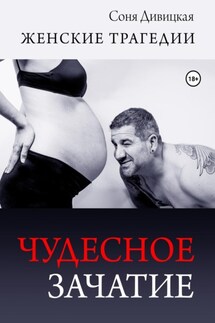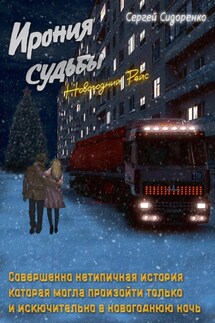Читать онлайн Tatiana Bazhan - Twisted tales
Doctor’s Grocery List
Bartholomew “Barty” Bingley, a man so vibrantly healthy he practically glowed with it, strolled into St. Elsewhere's Hospital for a routine check-up. He felt like a million bucks, or perhaps a slightly crumpled ten-dollar bill – still legal tender, but with a touch of character. Dr. Silas P. Quilling, a man whose stethoscope seemed perpetually colder than his temperament, examined Barty with the enthusiasm of a tax auditor. After a series of prods and pokes, Dr. Quilling's face adopted the grave expression one usually reserves for discussing the extinction of the dodo. “Mr. Bingley,” he intoned, his voice a mournful baritone, “I'm afraid we've found something… interesting.”
“Interesting” turned out to be a newly-minted ailment called “Quilling's Quadrant Conundrum,” a disease so rare, Dr. Quilling was fairly certain he'd just invented it. He prescribed a regiment of elderberry enemas, lavender lozenges, and a daily dose of interpretive dance therapy to “harmonize the afflicted quadrant.” Barty, initially bewildered, figured the doctor knew best. After a week of this bizarre regimen, Barty felt less like a spring chicken and more like a plucked turkey, simmering gently in a pot of existential dread. The interpretive dance, in particular, had attracted the attention of his neighbour, Agnes, who now believed Barty was auditioning for a mime troupe.
The diagnosis then took a darker turn. “It appears, Mr. Bingley,” Dr. Quilling announced with a theatrical sigh, “that the Conundrum has… evolved. We're now looking at a rather aggressive case of… Thyroid Tango.” Barty, now thoroughly convinced he was trapped in a medical sitcom, was scheduled for immediate surgery – a thyroidectomy, no less. On the eve of the operation, a young, bright-eyed intern, fresh out of medical school and overflowing with textbook knowledge, stumbled upon Barty's chart. He blinked. He squinted. He pulled out a magnifying glass. “Dr. Quilling,” he stammered, “I… I don't understand. Mr. Bingley's thyroid is perfectly healthy! All his results are normal!”
It turned out, in a twist worthy of the Bard himself, that Dr. Quilling had been using Barty's chart to scribble down his grocery list, and the “interesting” find had been nothing more than a reminder to buy artichokes. Barty, liberated from his impending Tango-ectomy, left St. Elsewhere's a wiser, if slightly more suspicious, man, forever wary of doctors and the seductive allure of exotic vegetables. The moral of the story? Sometimes, the only thing ailing you is the overactive imagination of your physician. And perhaps, the need for a clearer grocery list.
Fool's Gold
Barnaby Buttercup, a man whose name was tragically ironic considering his personality was more akin to week-old cabbage, was in a pickle. A very large, very vinegary pickle involving a misplaced lottery ticket worth enough to buy a small Caribbean island (populated only by highly trained monkeys, naturally). His supposed best friend, Archibald “Archie” Higgins, a fellow whose grin could melt glaciers and whose back was always available for a hearty, albeit slightly too enthusiastic, slap, was, naturally, right there beside him. Archie, you see, was the kind of friend who'd swear he’d lend you his own kidneys if you needed them, a sentiment generally expressed while simultaneously borrowing fifty bucks you'd never see again.
Barnaby, sweat plastering his already sparse comb-over to his scalp, wrung his hands. “Archie, old boy, I'm ruined! The ticket! Gone! Vanished like a politician's promise after election day!"
Archie, displaying the concern of a seasoned Shakespearean actor portraying profound grief, clapped Barnaby on the shoulder hard enough to dislocate something. “Barnaby, my dear, distraught friend! Despair not! We shall find it! We're thicker than thieves, you and I! More like conjoined twins, separated at birth but spiritually connected by our shared love of… well, whatever it is we share a love of!”
And find it they did. Or rather, Archie claimed to have found it, tucked rather suspiciously under his own doormat. He presented it to Barnaby with a theatrical flourish, a performance bordering on the Oscar-worthy, complete with a single, perfectly timed tear rolling down his cheek. “Barnaby! A miracle! Fate has smiled upon us! Or rather, upon me, briefly, before leading me to discover it… for you, of course!”
But here's where the pickle got extra vinegary. See, the lottery numbers were displayed in the newspaper that very morning, and Barnaby, despite being usually as sharp as a butter knife, wasn't completely daft. He noticed Archie’s signature in the bottom corner of the ticket, written in his distinctive, loopy handwriting.
The sugary-sweet mask of friendship, the overly-hearty back-slaps, the promises of kidneys freely given… all of it crumpled faster than a cheap suit in a hurricane. Suddenly, Archie's grin looked less like sunshine and more like the glint off a used car salesman's teeth. The truth, as it so often does, had a way of unearthing itself, leaving Barnaby facing not just a lost fortune, but a stark, uncomfortable reality: sometimes, the wolves wear woollier sweaters than you'd expect, and the Judas kiss comes with a bonus hug. The Caribbean island remained firmly out of reach, but Barnaby gained something far more valuable: a crystal-clear view of the man standing – or rather, shrinking – before him. A view that, while bitter, was at least free of the saccharine coating of false friendship. And in the grand ledger of life, a clear view, however painful, is always worth more than fool's gold.
Mama Grogan's Apple Pie
The clock above Grogan's Deli ticked with the slow, deliberate malice of a landlord waiting for his rent. Inside, Millie, a girl whose eyes held more starlight than the entire Texas sky, nervously smoothed down her already immaculate waitress uniform. Tonight was the night. Tonight, she was going to tell Benny, the shy, bespectacled busboy with the heart of a poet and the hands of a dishwashing champion, how she felt. She'd rehearsed the lines a hundred times: “Benny, you're sweeter than a slice of Mama Grogan's apple pie…” She imagined his blush, the way his glasses would slip down his nose, the stammering confession that would undoubtedly follow.
Benny, meanwhile, was in the back, wrestling with a mountain of suds. He clutched a small, velvet box hidden deep in his apron pocket. Inside nestled not a diamond – Benny couldn’t afford such extravagance – but a perfectly formed sea shell he’d found on Coney Island last summer. He knew Millie loved the ocean, and he envisioned presenting it to her, saying, “Millie, this shell whispers of the sea, just like my heart whispers of you…” He imagined her delight, the way her eyes would sparkle, the understanding that would dawn as she realized this quiet soul cherished her above all things.
Finally, closing time arrived. Millie, a little too brightly, approached Benny, who was scrubbing furiously at a lone, defiant plate. “Benny,” she began, her voice trembling slightly, “I… I’ve been meaning to tell you…”
Benny, emboldened, reached into his apron. “Millie,” he interrupted, his voice cracking with nerves. “I have something for you…” He presented the seashell with a flourish.
Millie stared at the shell, then at Benny's earnest face. A slow smile spread across her face, but a different kind of smile than Benny anticipated. “Benny,” she said, “that's so thoughtful! I got a new job! At a seafood restaurant down by the docks. They needed someone with experience serving… well, you know, seafood!” She paused, then added brightly, “It's much better pay. Guess I just have a knack for handling shellfish.”
Benny's glasses slipped. The shell, suddenly heavy, felt like a stone in his hand. He looked from the shell, to Millie, and back to the mountain of dirty dishes, an ocean of unrequited love stretching before him. The clock above Grogan's ticked on, each second now a tiny, mocking laugh. The only thing sweeter than Mama Grogan's apple pie, it seemed, was the irony of fate. He simply nodded, managed a weak smile, and went back to scrubbing, the sound of shattering dishes drowned out by the roar of the ocean only he could hear.
Lucy and the Feathered Fiasco
Lucy, a soul as bright as a newly-minted penny but as grounded as a well-worn park bench, possessed a peculiar penchant for pigeons. Every day, rain or shine, she'd waltz into Central Park, a veritable Pied Piper in sensible shoes, scattering seeds with the generosity of a lottery winner. The pigeons, those feathered freeloaders of the sky, knew her schedule better than the mayor knew his own policies.
Her heart, a veritable aviary of affection, overflowed with fondness for the cooing creatures. She saw not disease-ridden pests, but little feathered philosophers, pondering the weighty matters of breadcrumbs and park benches. She even gave them names – Ben, Penelope, and the perpetually grumpy Clarence, who always stole the best bits.
Little did Lucy suspect that her innocent hobby was brewing a storm, a feathered hurricane poised to descend upon the unsuspecting city. The pigeon population, emboldened by Lucy's largesse, exploded like popcorn in a hot skillet. Soon, flocks darkened the skies, statues were snowed under with…well, you get the picture, and the park benches, once heavens of tranquility, became avian battlegrounds.
Mayor Thompson, a man whose hair was greyer than a pigeon's wing and whose temper shorter than a pigeon's attention span, finally cracked. He declared, in a voice that could curdle milk, “Enough! This feathered frenzy must cease!”
His solution, hatched in the dead of night, was…unconventional. He proposed a city-wide pigeon beauty pageant. The winner would get a lifetime supply of gourmet birdseed, and the rest would be gently relocated to a charming, albeit distant, island paradise.
The pageant was a spectacle. Pigeons preened, strutted, and cooed their hearts out. Lucy, naturally, was a judge, her heart torn between fair assessment and fierce loyalty to her feathered friends. Clarence, with his perpetually scowling face, somehow charmed the crowd.
In a twist worthy of a soap opera, Clarence won. But the island paradise turned out to be… a chicken farm. Clarence, used to urban sophistication, found himself surrounded by clucking, scratching rivals. Lucy, though heartbroken, couldn't help but chuckle. The city was saved, and Clarence, well, he learned that even a pigeon can be humbled by a bit of rural reality. Lucy continued to visit the park, though now she shared her seeds with the squirrels, just to diversify her portfolio, you understand.
The Ballad of Bob's Bottomless Basket of Broken Promises
Bob, a dreamer with a heart full of honeyed words and an imagination that could rival a kaleidoscope, had sworn eternal devotion to Beatrice. “My dear Beatrice,” he’d intoned, eyes gleaming like polished pennies, “I shall make you my wife, my queen, my guiding North Star!” Beatrice, bless her soul, believed him. That was ten years ago.









